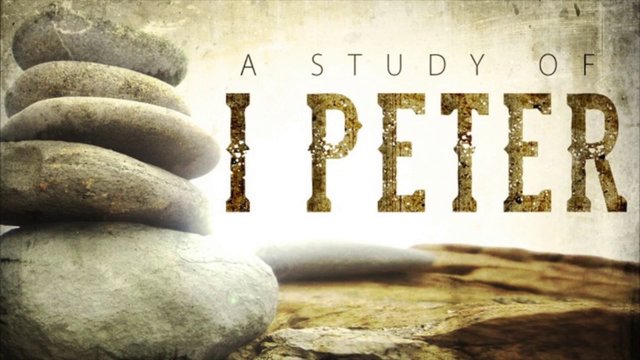This week we are continuing with our study of Peter’s Epistles. Please read 1 Peter 2 for Tuesday’s discussion.
The Renunciations: (vv. 1-4)
This epistle is often thought of as a baptismal homily or at least that the baptismal service provides the background and structure for the letter. We see this baptismal echo in vv.1-4. In most translations, verse 1 reads: “Put away all malice, etc.” The Greek word translated as “put away” is apotithemi. This word generally means to “lay off or aside, renounce, or stow away.” The word translated as “malice” is kakia which is the same word used for “evil or wickedness.”
If we translate verse 2:1 a little differently, then its baptismal character comes out. Peter is telling his audience to “renounce all wickedness.” Going back to the earliest rites this renunciation is an essential characteristic of baptism and one that we continue to use today. 1979 BCP 302. Here and throughout this letter, Peter is taking his audience back to their baptism as the foundation of their faith in Christ and their hope in their salvation.
The Chosen Priesthood (vv.5-12)
When Moses led the Israelites out of Egypt, their first destination was Mount Sinai where Moses first encountered God in the burning bush. The Israelites reached Siani seven weeks after the Exodus (or 50 days including the Exodus). Here on the base of Mount Sinai, immediately prior to the giving of the Ten Commandments, God tells Moses that the Israelites “shall be to me a kingdom of priests and a holy nation.” Ex. 19:6. This, of course, is the exact language used by Peter in verse 9. If you have time before tomorrow, read the story of the giving of the Ten Commandments in Exodus 19-20.
From the beginning, the purpose of Israel was to be a blessing and a light to the nations and to proclaim God’s mighty acts to the world. Gen. 12:2, Isa. 12:4. In these verses, Peter sees the completion of the Old Testament promises. The church, both Greek and Jew, is continuing in Isreal’s original mission. We, as the church, have been set aside to proclaim the light in the darkness.
Peter reminds his audience and us, that our lives should reflect our status. If we are a royal priesthood, having been set apart by God to serve God, then our lives should reflect this holiness. Our conduct among the world should be such that the surrounding people will see Christ within us and glorify God. In all manners, our conduct should glorify God because we are that royal priesthood.
Dinner is at 6. The menu is lamb tagine. Discussion about 6:45. Compline around 8. All you need for tonight is a bible, and if you do not have one, one will be provided for you. Hope to see you here!
Put off your old nature which belongs to your former manner of life and is corrupt through deceitful lusts, and be renewed in the spirit of your minds, and put on the new nature, created after the likeness of God in true righteousness and holiness.
Ephesians 4:22-24


Pingback: 2 Peter 1:1-4, Theosis – Ancient Anglican